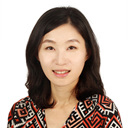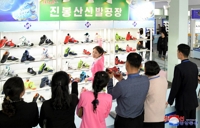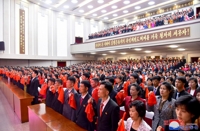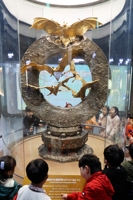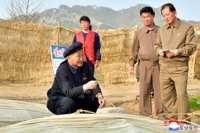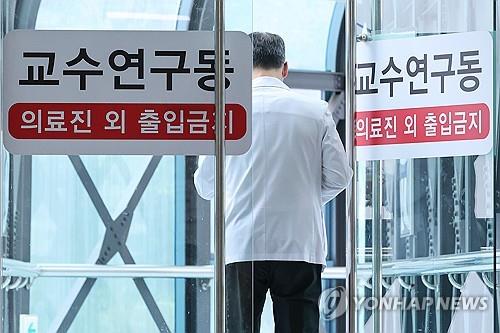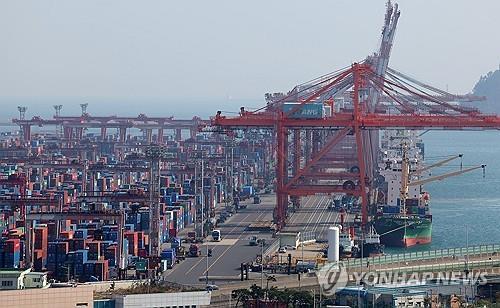(2nd LD) Nat'l Assembly overwhelmingly approves revisions to real estate regulation bills
(ATTN: UPDATES with more details in last para)
SEOUL, Aug. 4 (Yonhap) -- South Korea's National Assembly passed legislation on Tuesday that is meant to rein in speculative property transactions and increase taxation for multiple home owners.
The revisions of laws on the income tax, corporate tax and property ownership tax have been approved in a plenary session led by the ruling Democratic Party (DP), which dominates 176 seats out of the total 300 in the National Assembly.
The main opposition United Future Party (UFP), which has 103 seats, boycotted the voting session in protest against what they believed to be a lack of bipartisan discussion.
The move comes as the soaring property values have fueled public discontent toward the Moon Jae-in government despite its desperate efforts to make homes more affordable, especially in the capital Seoul.
The government announced measures to raise the property ownership tax for owners of multiple homes on July 10. On Tuesday, it unveiled a plan to supply more than 130,000 homes in the capital area over the next eight years in its latest action to cool a surge in prices.
The bills, a follow-up to the July 10 measures, would increase the tax burden for people with more than one house and those who are believed to engage in speculative home buying.
The revisions will raise the property ownership tax rate for owners of multiple homes from the current 0.6-3.2 percent to 1.2-6 percent, and it will also apply a maximum of 20 percent, from the current 10 percent, in corporate tax on companies that own multiple homes.
Under the change, owners who have more than one house in state-designated speculative areas will need to pay heavier transfer taxes. Those who sell a house within two years of purchase will also face heftier transfer tax.
Also purchase rights for apartment units will be considered the same as homeownership from January.
The local tax law has also been revised to calm the jittery property market by raising the property acquisition tax rate to a maximum of 12 percent from the current 3.5 percent for people who are given a house worth more than 300 million won (US$251,000) in state-designated speculative areas.
Countering the opposition protest that the revisions will increase tax burden, Rep. Park Hong-keun of the DP said during the plenary session that "only 0.99 percent of the entire public is subject to property ownership taxation."
UFP lawmaker Rep. Choo Kyung-ho accused the ruling party of ramming the bills through the assembly in a process "that can hardly be called democratic."
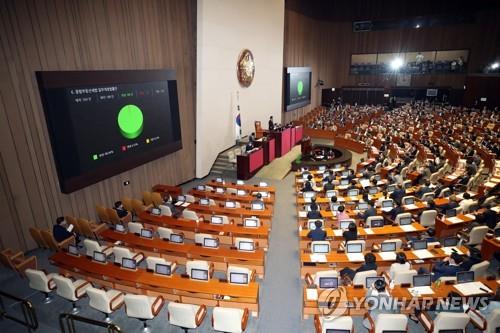
South Korean National Assembly holds a voting session for a set of revisions aimed at calming the local property market on Aug. 4, 2020. (Yonhap)
Unilaterally supported by the DP, a revision to the law concerning reports on real estate transactions also passed through the assembly. The revision will newly require information on a house lease contract, including its contractors, the amount of rental deposit or fees, as well as the lease period to be reported to concerned municipalities within 30 days of the deal. The new rule will go into effect on June 1 next year.
A set of three separate bills have also been approved, opening the way to accelerate the launch of a new investigative body targeting corruption by high-ranking government officials, tentatively named the Corruption Investigation Office For High-ranking Officials.
The revised laws legally paved the way to hold a parliamentary hearing on the confirmation of a nominee to head the new body.
Also passed during the session was a revision to the National Sports Promotion Act, aimed to prevent bullying and violence by sports trainers following the apparent suicide of former Gyeongju triathlete Choi Suk-hyeon who was verbally and physically abused by a head coach and triathletes.
Another bill to revise the Government Organization Act also won parliamentary approval during the session, paving the way for the government's plan to elevate the administrative power and independence of the Korea Centers for Disease Control and Prevention that has been at the center of South Korea's efforts to contain the new coronavirus.
jaeyeon.woo@yna.co.kr
(END)
-
 S. Korea marks 30th anniv. of Korean Pavilion at Venice Biennale with contemporary art
S. Korea marks 30th anniv. of Korean Pavilion at Venice Biennale with contemporary art -
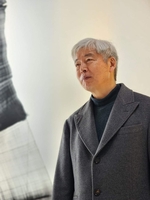 Artist Lee Bae captures ethereal Korean aesthetics at Venice Biennale
Artist Lee Bae captures ethereal Korean aesthetics at Venice Biennale -
 Ateez member Yunho throws first pitch at MLB match between Dodgers, Mets
Ateez member Yunho throws first pitch at MLB match between Dodgers, Mets -
 Gov't likely to accept university chiefs' request to lower med school enrollment quota
Gov't likely to accept university chiefs' request to lower med school enrollment quota -
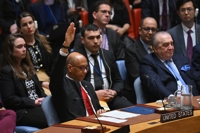 S. Korea supports resolution backing U.N. membership of Palestine
S. Korea supports resolution backing U.N. membership of Palestine
-
 Artist Lee Bae captures ethereal Korean aesthetics at Venice Biennale
Artist Lee Bae captures ethereal Korean aesthetics at Venice Biennale -
 S. Korea marks 30th anniv. of Korean Pavilion at Venice Biennale with contemporary art
S. Korea marks 30th anniv. of Korean Pavilion at Venice Biennale with contemporary art -
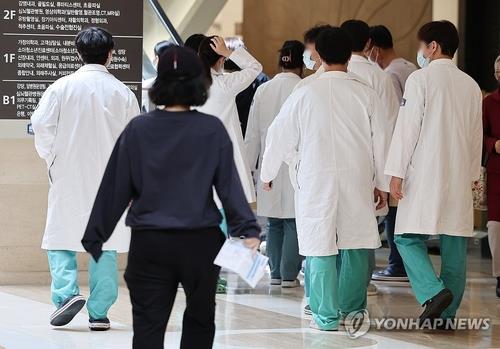 Gov't likely to accept university chiefs' request to lower med school enrollment quota
Gov't likely to accept university chiefs' request to lower med school enrollment quota -
 Looming weekly closure of major hospitals feared to worsen medical service crisis
Looming weekly closure of major hospitals feared to worsen medical service crisis -
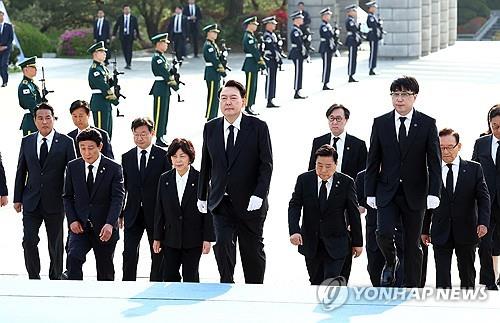 Yoon's approval rating sinks to lowest point since taking office
Yoon's approval rating sinks to lowest point since taking office
-
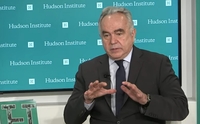 U.S. will take steps for three-way engagement on nuclear deterrence with S. Korea, Japan: Campbell
U.S. will take steps for three-way engagement on nuclear deterrence with S. Korea, Japan: Campbell -
 (LEAD) Hybe to file complaint against sublabel executives over internal conflict
(LEAD) Hybe to file complaint against sublabel executives over internal conflict -
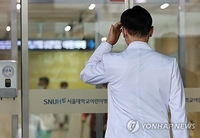 Looming weekly closure of major hospitals feared to worsen medical service crisis
Looming weekly closure of major hospitals feared to worsen medical service crisis -
 Author of ADOR's 'internal document' refutes allegations of spinoff plot
Author of ADOR's 'internal document' refutes allegations of spinoff plot -
 U.S. SPACECOM commander says N.K.'s satellite launch violates U.N. resolutions
U.S. SPACECOM commander says N.K.'s satellite launch violates U.N. resolutions
